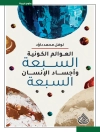In ‘The Mirror of Alchimy, ‘ Roger Bacon intricately explores the interconnected realms of science and mysticism, presenting alchemy as a precursor to modern scientific inquiry. Written in the late medieval period, Bacon’s work is characterized by a rigorous yet lyrical prose style that fuses philosophical reflection with practical experimentation. He utilizes a dialectical approach to deconstruct alchemical processes, revealing not only the techniques of transformation but also the underlying metaphysical principles. This seminal treatise serves as both a comprehensive guide to the alchemist’s art and a profound meditation on the nature of knowledge and reality, firmly situating it within the burgeoning intellectual landscape of the 13th century, which laid the groundwork for the Renaissance and the Scientific Revolution. Roger Bacon, a Franciscan friar and philosopher, was a pioneer in advocating for empirical methods of inquiry, influenced by the works of Aristotle and his own observations. His experiences in academia and his encounters with various scientific disciplines motivated him to seek a deeper understanding of nature through alchemical practices. Bacon’s unique perspectives on the synthesis of philosophy and science reflect his belief in the transformative potential of knowledge, positioning him as an early advocate for the experimental approach that would characterize later scientific thought. ‘The Mirror of Alchimy’ is a compelling read for scholars, philosophers, and curious minds alike. Its rich historical context and Bacon’s visionary synthesis of science and mysticism provide profound insights into the origins of modern thought. For anyone interested in the interrelation of alchemical traditions and their influence on contemporary science, this work is an essential addition to the canon, inviting readers to contemplate the transformative power of knowledge.
लेखक के बारे में
Roger Bacon was a medieval English philosopher and Franciscan friar who placed considerable emphasis on empiricism, and has been sometimes credited as one of the earliest European advocates of the modern scientific method inspired by the works of Plato and Aristotle. Born in Ilchester, Somerset, England, circa 1214 to 1220, Bacon was a prolific scholar who made significant contributions to mathematics, optics, and linguistics, as well. One of his notable works, ‘The Mirror of Alchimy’ (Speculum Alchemiae), attributed to him, although the authorship remains uncertain, demonstrated his engagement with alchemical thought, which during his time was intricately linked with the pursuit of knowledge. Bacon argued for the importance of experimentation and frequently wrote about how the manipulation of substances can lead to a greater understanding of the natural world. His style combined the meticulous observations characteristic of 13th-century science with the allegorical and spiritual interpretations of alchemical work. Bacon’s writings were profoundly influential on later scientists and thinkers, cementing his legacy as an early forerunner in the development of the modern scientific traditions. His dedication to learning and empirical methods gained him the title ‘Doctor Mirabilis’ or ‘Wonderful Teacher’ in the later years. Despite facing imprisonment towards the end of his life due to some of his controversial ideas, Bacon’s intellectual contributions have continued to be celebrated throughout the centuries.












